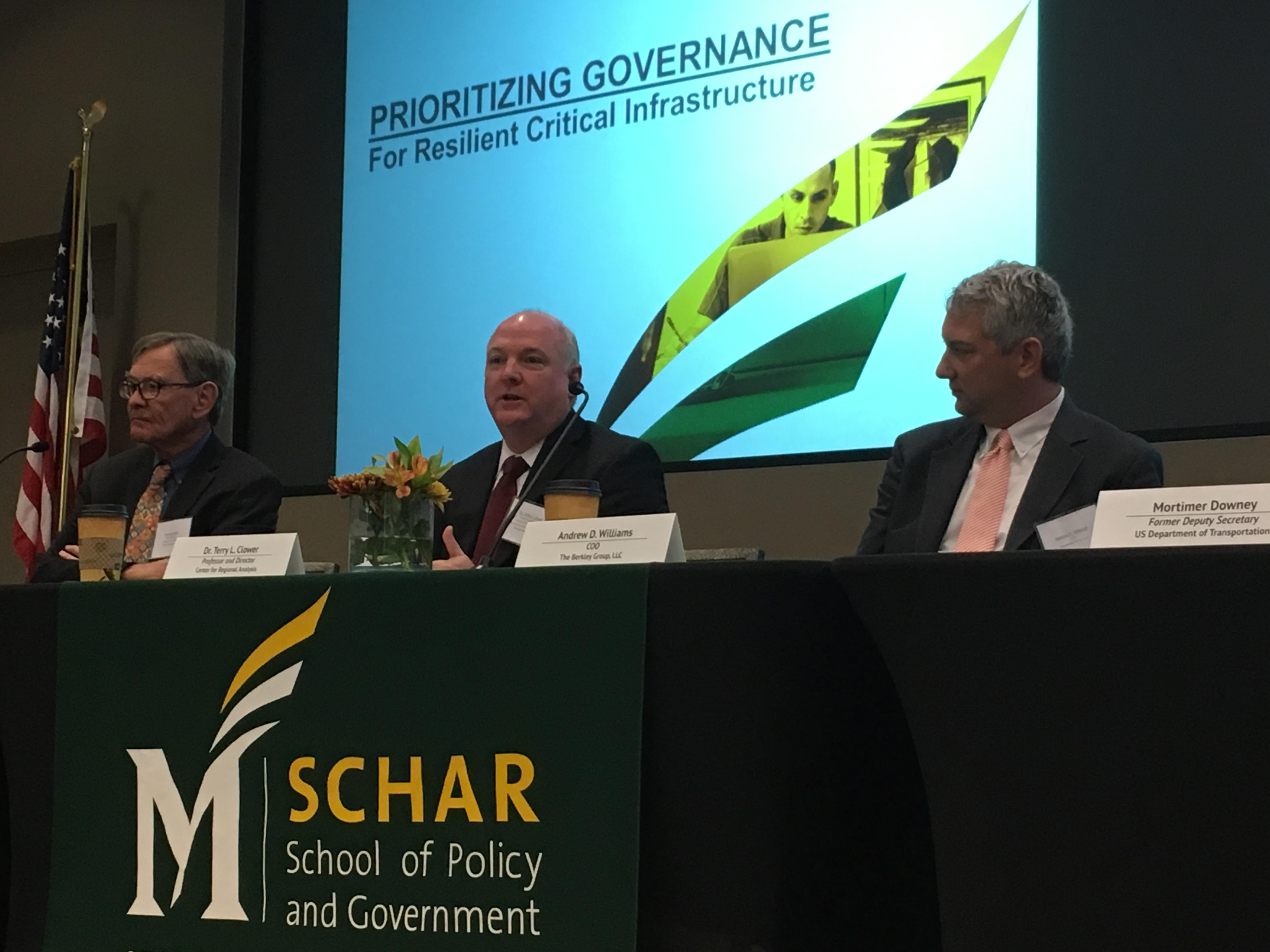George Mason University’s Schar School of Policy and Government and the National Academy of Public Administration are committed to developing and supporting public service leadership across all professions in local, regional, and national communities, in the hope of advancing good governance and the public good.
The current human capital environment is marked by efforts to build the next generation of public servants. Across the nation, the intergovernmental intersections between state and local governments are contracting and growing. At the same time, in the midst of government drawdowns and budget cutbacks, cities and their leaders are innovating, and advancing their communities into the next era of governance as well as providing more effective and equitable public services.
“The reality of the public sector today is that it is assessed by the efficiency of its service delivery. No longer is the effectiveness of the public sector measured by the revenue it generates or the employment it provides…” – R Chandrashekhar, Additional Secretary, eGovernance, Government of India.
Critical infrastructure supports lifeline systems that are considered essential to the successful functioning of governance and society in the U.S.. These systems are the common thread that touches every public service delivery challenge of the future across all levels of government. The efficient delivery of government services relies on a power grid functioning at full capacity, an operational and expansive communication network, a streamlined and efficient transportation system, and water infrastructure delivering clean and affordable water free of pollution.
The capacity and equity of these systems are pressing problems for public administrators around the nation, at all levels of government. The destruction of, or even inconsistency in, these systems could have a debilitating impact upon the economic security and vitality of the nation. Additionally, if such networks are disrupted, there will be a lasting impact upon the social cohesion and political trust of the community. Prioritizing the physical and operational condition of these systems will promote a sense of resilient governance and provide the necessities for human development and capability that extend beyond traditional physiological and safety needs.
On Monday, October 30, 2017, the Schar School and the Academy brought together more than 150 thought leaders, subject matter experts, practitioners, and academics from across the public, private, and nonprofit sectors to host a one-day, highly interactive symposium to discuss some of the major infrastructure challenges facing local, state, and federal government in addition to considering strategies to ensure national ability to govern infrastructure networks for the future.
Pictured (left to right) are Thomas Downs, Board Member, Network Rail Consulting; Former President, Amtrak; Dr. Terry L. Clower, Professor and Director of the Center for Regional Analysis, Schar School of Policy Government at George Mason University; Andrew D. Williams, Chief Operating Officer, The Berkley Group; and former Dep. Sec. Mortimer L. Downey, U.S. Department of Transportation.
Click here for a full program agenda.

